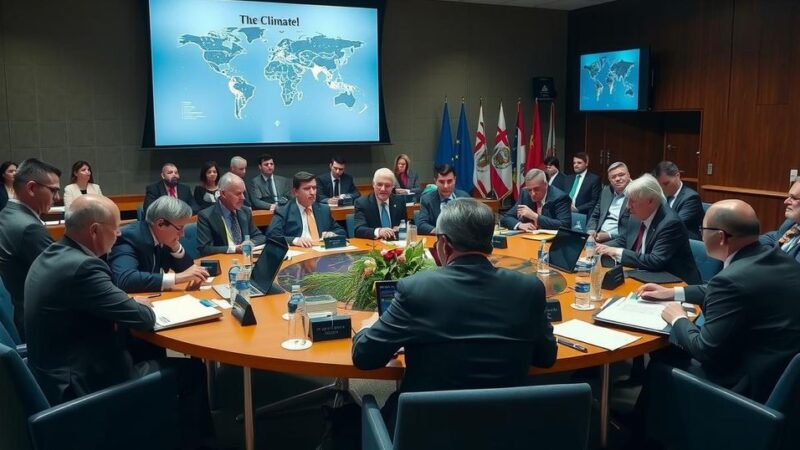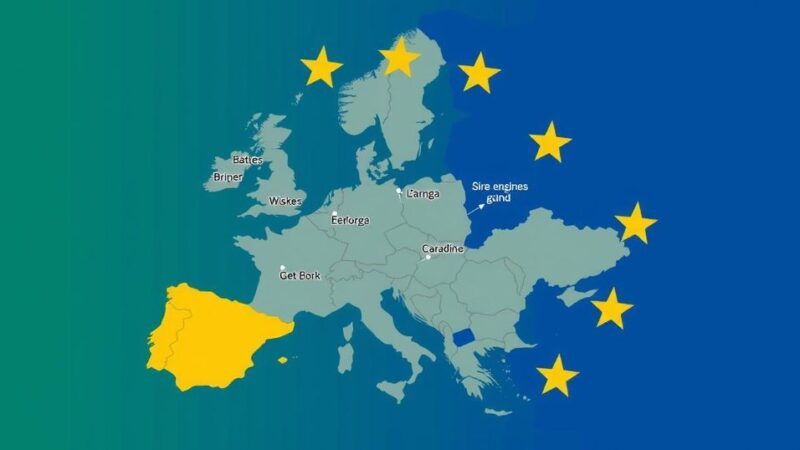UN climate talks, specifically the recent conference in Baku, reflect a history of failures dating back to the first meeting in 1995. Key events like COP6 and COP15 highlight the ongoing struggles for consensus among countries. Political uncertainties and logistics have complicated negotiations, affecting both climate and biodiversity initiatives. Recent conferences have concluded without binding agreements, emphasizing the need for renewed commitment and cooperation in future discussions.
The ongoing struggles at the UN climate talks in Baku signal a troubling continuation of previous failures at these annual conferences. Since the initiation of the UN climate conferences in 1995, many have been marked by discord and outright collapse in the absence of consensus. Notably, COP6 in The Hague in 2000 was suspended amid intense disputes regarding environmental policies, compounded by political uncertainties following the close US presidential election.
Alden Meyer, a respected figure in climate diplomacy, reflected on COP6, noting, “There was that uncertainty. They couldn’t agree. And ministers started leaving and they had to suspend the COP.” The core disagreement at the time centered on how land use credits could factor into the emission reductions mandated by the Kyoto Protocol. Interestingly, the subsequent election of President George W. Bush, who opposed the Kyoto Protocol, ignited renewed discussions at COP6-2 in Bonn as countries sought to demonstrate ongoing commitment to climate initiatives.
The Copenhagen summit of 2009 (COP15) presented perhaps the most significant hope for global climate action, spurred by President Barack Obama who aimed to shift away from the previous administration’s policies. The summit grew to monumental expectations, with world leaders converging in Denmark. However, the failure to garner substantial agreements stemmed from ineffective negotiations between leaders and internal conflicts concerning binding targets, particularly with China.Although the Copenhagen Accord acknowledged climate change, it failed to establish concrete emission reduction targets, ultimately limited to a non-binding agreement.
Paul Watkinson, a veteran French negotiator, emphasized logistical shortcomings during this conference, stating, “In Copenhagen, there was no longer anything to eat or drink on Saturday.” These issues, compounded by the frustrations of smaller nations, culminated in a lack of formal adoption of the Copenhagen Accord as a UN treaty.
More recently, the biodiversity COP16 in Cali, Colombia concluded without actionable outcomes regarding funding to combat environmental destruction, further highlighting the challenges faced by international climate negotiations. Colombia has since proposed a resumption of discussions in the first trimester of 2025.
The pervasive theme of failure at these UN climate conferences raises significant concerns regarding international climate diplomacy and the urgency required to address environmental degradation.
The history of UN climate conferences reveals a pattern of repeated failures and misaligned priorities among negotiators and participating nations. Since the inception of these talks in 1995, the conferences have encountered numerous challenges, including lack of consensus, political turmoil, and ineffective negotiations. Significant meetings such as COP6 and COP15 have become symbolic of the tensions and complexities inherent in achieving international agreements on climate action. Additionally, recent biodiversity conferences have mirrored these struggles, underscoring the ongoing global challenge of mobilizing collective action against climate change and environmental destruction.
In conclusion, the challenges faced by UN climate conferences are symptomatic of deeper issues within global environmental governance. The historical failures, such as those observed in COP6 and COP15, illustrate the difficulty in achieving consensus amid political dynamics and competing national interests. As seen in recent biodiversity talks, the inability to secure commitments further complicates the landscape of international climate negotiations. The call for resumed discussions in 2025 indicates a continued effort to overcome these obstacles, albeit in an increasingly urgent context.
Original Source: www.al-monitor.com






